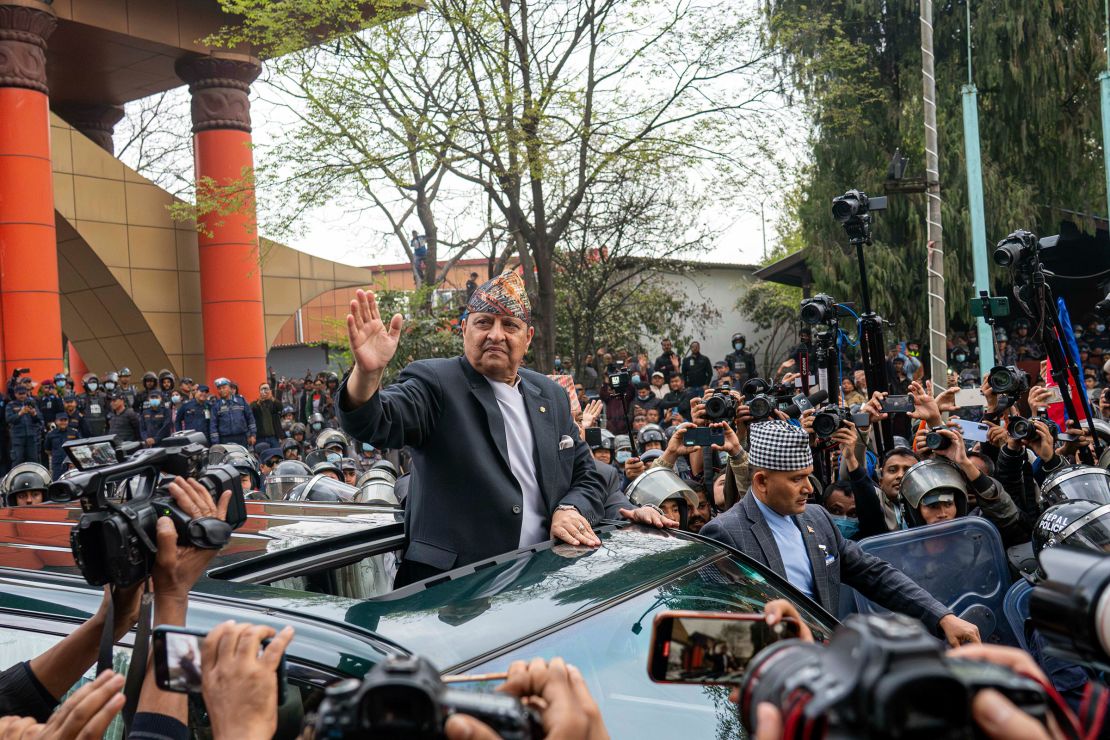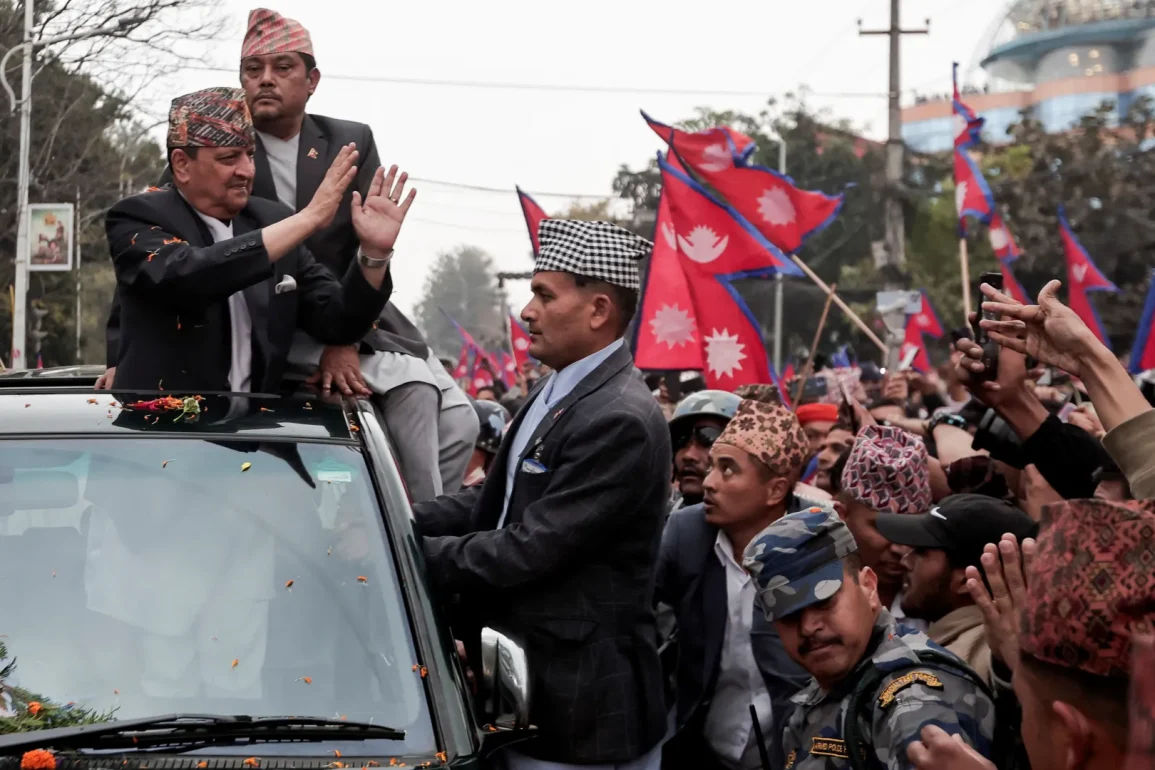Thousands of supporters gathered in Kathmandu, Nepal’s capital, on Sunday to welcome the country’s former king and demand the reinstatement of the monarchy along with the recognition of Hinduism as the state religion.
An estimated 10,000 backers of Gyanendra Shah assembled at the main entrance of Kathmandu’s Tribhuvan International Airport as he returned from a tour of western Nepal.
“Vacate the royal palace for the king. Come back king, save the country. Long live our beloved king. We want monarchy,” the crowds chanted. The demonstration caused disruptions, forcing passengers to walk to and from the airport.
Hundreds of riot police were deployed to prevent protesters from entering the airport, but no incidents of violence were reported.
Massive street protests in 2006 had led to Gyanendra relinquishing his authoritarian rule. Two years later, the parliament voted to abolish the monarchy, leading the former king to vacate the Royal Palace and live as a private citizen.
Public Discontent and Calls for Change
Many Nepalis have grown disillusioned with the republic, blaming it for ongoing political instability, economic struggles, and rampant corruption. Since the abolition of the monarchy in 2008, Nepal has seen 13 different governments.
Rally participants expressed hope that a shift in the political system would prevent further decline in the country’s condition.

“We are here to give the king our full support and to rally behind him all the way to reinstating him in the royal throne,” said 72-year-old Thir Bahadur Bhandari.
Among the demonstrators was 50-year-old carpenter Kulraj Shrestha, who had initially participated in the 2006 protests against the monarchy but has since changed his stance.
“The worst thing that is happening to the country is massive corruption, and all politicians in power are not doing anything for the country,” Shrestha said.
“I was in the protests that took away monarchy hoping it would help the country, but I was mistaken and the nation has further plunged so I have changed my mind.”
The Former King’s Position
Gyanendra has not publicly addressed the calls for the monarchy’s return. Despite the growing support among citizens, the chances of his immediate reinstatement remain slim.
Gyanendra ascended the throne in 2002 following the massacre of his brother and other members of the royal family.
Initially serving as a constitutional head of state without executive powers, he assumed absolute control in 2005, dissolving the government and parliament, detaining politicians and journalists, cutting off communications, and declaring a state of emergency while ruling with military support.


